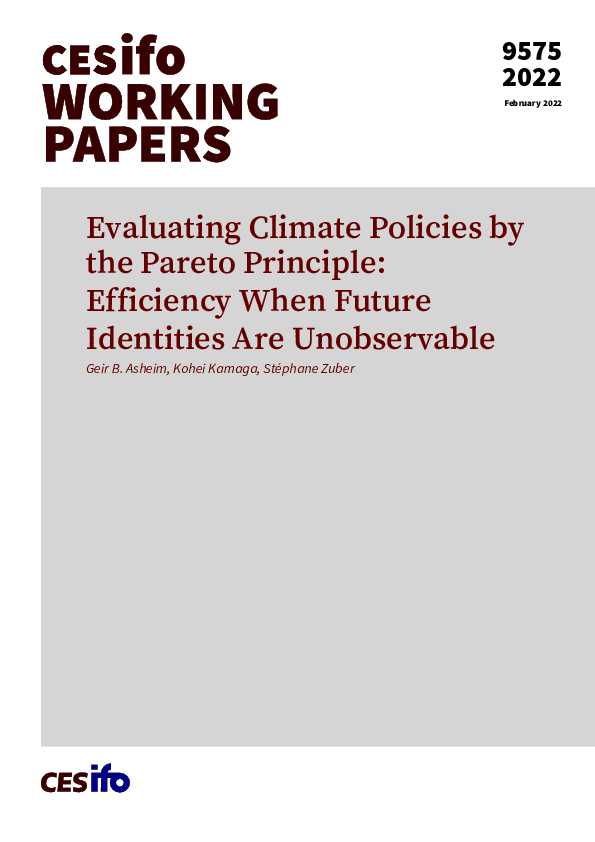Evaluating climate policies by the Pareto Principle: efficiency when future identities are unobservable

Asheim, Geir B. ; Kamaga, Kohei ; Zuber, Stéphane
CESifo - Munich
2022
44 p.
climate change ; intergenerational transfer ; ethics ; future ; decarbonization
CESifo working paper
9575
Social sciences
https://www.cesifo.org/DocDL/cesifo1_wp9575.pdf
English
Bibliogr.
"Climate change is an externality since those who emit greenhouse gases do not pay the long-term negative consequences of their emissions. In view of the resulting inefficiency, it has been claimed that climate policies can be evaluated by the Pareto principle. However, climate policies lead to different identities of future people, implying that the Pareto principle is not applicable. Assuming that there are infinitely many future people whose identities are not observable, we specify conditions under which their spatiotemporal positions do not matter. This implies that the Suppes-Sen principle whereby ranked streams are compared plays an important role and justifies that following dominance relation: A state a is said to dominate another state b if a Pareto dominates b for existing people and Suppes-Sen dominates b for future people, with at least one of the two being strict. We illustrate the consequences of this dominance definition for policy choice."
Digital
The ETUI is co-funded by the European Union. Views and opinions expressed are however those of the author(s) only and do not necessarily reflect those of the European Union or the ETUI.